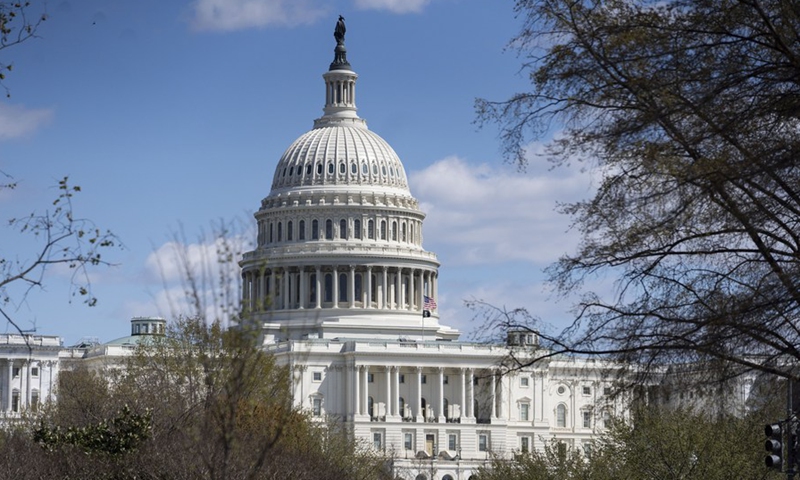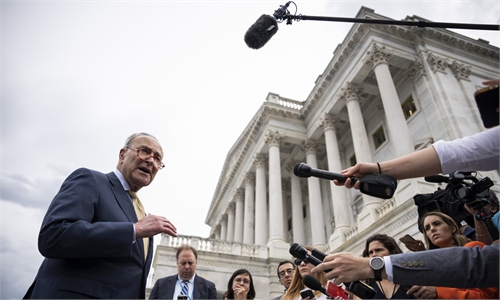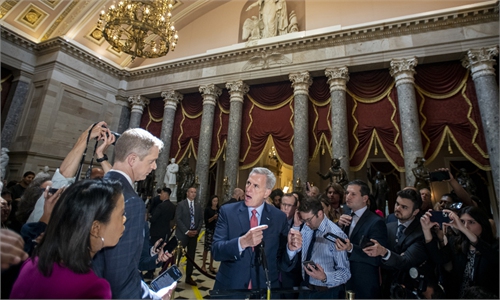US Congress raises debt ceiling, but high inflation and rate hikes may trigger long-term recession: experts

Photo taken on April 2, 2021 shows the U.S. Capitol building in Washington, DC, the United States. (Photo: Xinhua)
The US Senate passed a bipartisan budget agreement on Thursday local time to raise the debt ceiling, preventing a US default, the White House said in a press release.
The bipartisan legislation is backed by President Joe Biden and lifts the government's $31.4 trillion debt ceiling, with the Senate voting 63-36 to approve the bill, according to a report by Reuters.
This is the 103rd time the US Congress has adjusted the debt ceiling since the end of World War II, while the $31.4 trillion figure accounts for more than 120 percent of its GDP, equivalent to $94,000 in debt per American citizen, the Xinhua News Agency reported.
"This bipartisan agreement is a big win for our economy and the American people," Biden said in the White House statement.
Experts noted that the passing of the bill will benefit the US for the short term in tackling current obstacles, but its high inflation and the Fed's aggressive rates may further trigger a potential recession in the long run.
The debt ceiling will continue to rise while the passing of the bill will further burden interest rate hikes, which actually will not benefit the US, Hu Qimu, deputy secretary general of the digital real economies integration Forum 50, told the Global Times on Friday
Hu added that the news may help calm the market and stabilize the selloff of US debts, but the core issue of inflation has not been solved, stressing that it will not be able to improve American people's living conditions as it is government spending and has no impact on further alleviating inflation and boosting the local job market or domestic consumption levels.
The debt deal would result in a 0.3 percent drag on the US' real GDP in 2024 and lead to 250,000 job losses, CNN reported, citing Gregory Daco, EY-Parthenon's chief economist.
Gao Lingyun, an expert at the Chinese Academy of Social Sciences in Beijing, noted that the bill has just delayed the US debt problem for two years.
Gao meanwhile noted that the possibility of a future appreciation for US credit and its dollar-denominated assets will decline, which will also impact its credibility among global investors.
Speaking on the potential for long-term recession, Gao said that the possibility is growing, as the country has to hike interest rates to contain inflation, noting that raising the debt ceiling will lead to a further expansion in fiscal policy.
That means high inflation with lower growth, high interest rates and high debt will be major issues for US authorities to consider, according to Gao.
Although the US dollar may continue its dominance, the emergence of a more multipolar currency system over the next few decades as the US pivots to protectionism, weakening institutions, and the risk of a default would threaten the dollar's global dominance, Bloomberg reported earlier in May, citing a report from Moody's Investors Service.


